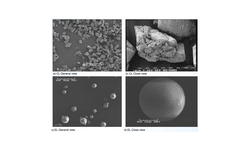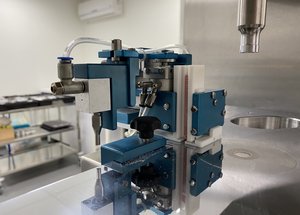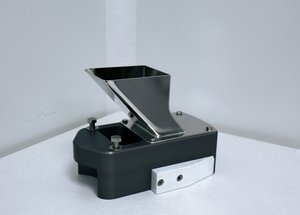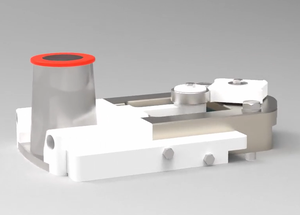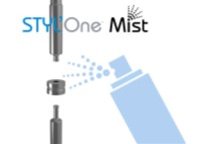Scientific papers
Direct compression is the most economical method of tablet production in terms of time, personnel and
resources. Lack of drug compactibility and/or fluidity can be compensated for by the use of suitable direct
compression excipients. The attributes of an ideal direct compression excipient are not embodied in a single
material and in practice it is desirable to mix two or more excipients together to optimise tableting
characteristics. Thus, it would be highly desirable to encompass most of the desired properties required for
tablet direct compression in a single material. This would facilitate the formulation and reduce the cost of
manufacturing, whilst achieving a good quality product.
The shape of drug or excipient particles can play an important role in improving powder characteristics. Many studies have shown that powder flowability,
compressibility and compactibility were improved when spherical shaped
particles were used (Kawashima et al, 1989 &1994). Different
crystallisation techniques have been used to produce spherical particles
(Kawashima et al, 2001; Bhadra et al, 2004). However, the term
‘spherical crystallization’ is misleading, because ideal spherical particles
were not obtained. The resulting particles were an agglomeration of
needle shaped, rod or plate-like microcrystallites.
The Stylcam 100R (Medel’Pharm, France) is a single punch, otary tablet press simulator built upon a modifiablemechanical
cam and a programmable electronic cam.
The aim was to produce spherical lactose particles (EL) using a novel crystallization technique and to
compare their compaction properties with commercial lactose (CL) and microcrystalline cellulose (Avicel®
PH102).
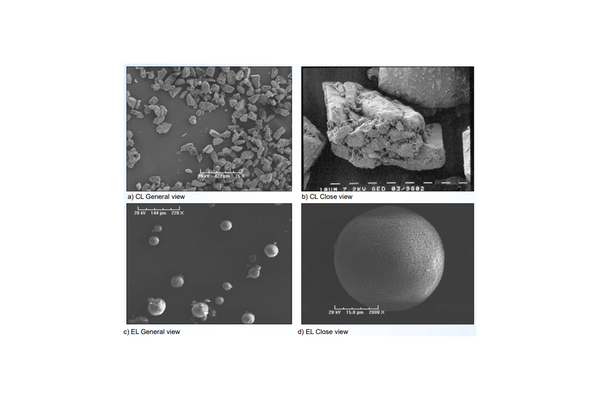
Comments
No comments posted yet.
Add a comment


